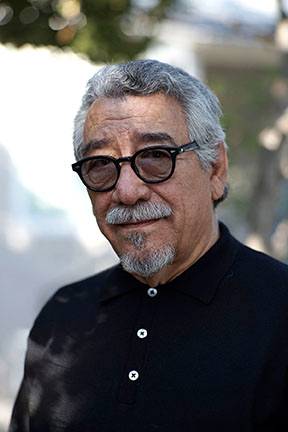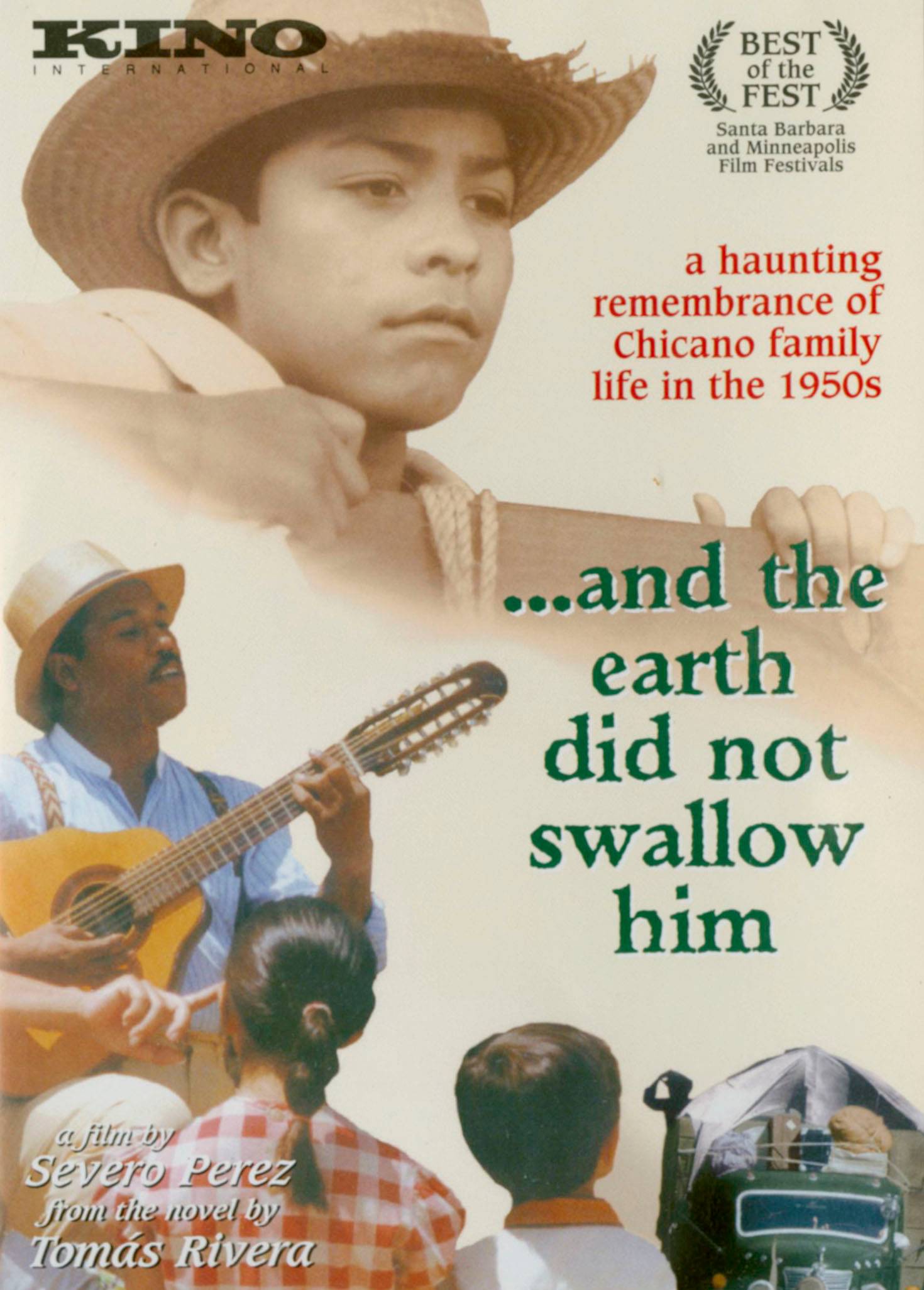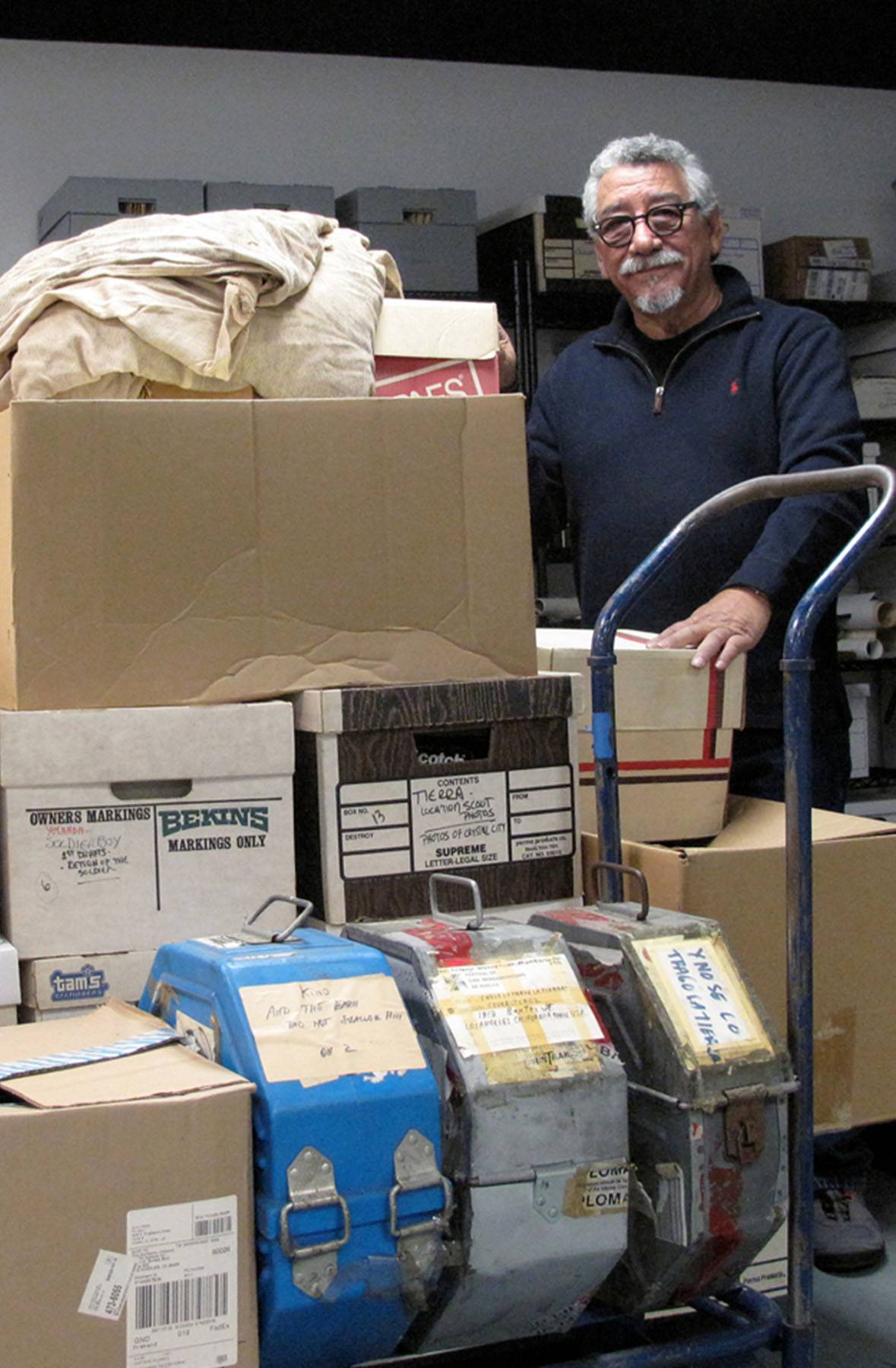


Acclaimed filmmaker SEVERO PEREZ
donates his archive to the Wittliff Collections
FOR IMMEDIATE RELEASE
SAN MARCOS, TX—Acclaimed filmmaker Severo Perez, best known for his award-winning movie …and the earth did not swallow him, has donated his extensive archive to The Wittliff Collections at the Alkek Library, Texas State University in San Marcos.
Originally from San Antonio, Perez moved to Los Angeles in 1972 to pursue a career in the motion picture industry. His productions have won more than 50 awards, including three CINE Golden Eagles. Perez is also an accomplished playwright and novelist, and he has collaborated with Luis Valdez’s El Teatro Campesino.

Perez’s 1994 film, …and the earth did not swallow him, is adapted from Tomás Rivera’s classic 1971 Chicano novel, …y no se lo tragó la tierra, and follows the lives of a South Texas family of migrant farmworkers in the 1950s. Perez’s nuanced, powerful film beautifully evokes the substance and spirit of Rivera’s work, and it has won international critical acclaim, including top honors at film festivals worldwide.
“Severo Perez is a major talent and an influential artist who has done so much to capture the spirit of the borderlands,” said Wittliff Collections director, Dr. David Coleman. “We are delighted to add this substantial and extraordinary archive to our permanent holdings.”
“I feel honored by this opportunity to have my archives preserved,” said Severo Perez. “The Wittliff Collections has a reputation for high quality holdings and I’m very pleased to be a part of the collection.”
Perez’s other films include a documentary on artist Carmen Lomas Garza, a feature film on Tejano hero Juan Seguin, and an adaptation of Mark Twain's The Notorious Jumping Frog of Calaveras County. He has created documentaries on a wide range of subjects, including La Raza Unida’s 1960s political uprising in Crystal City, Texas. He also negotiated the deal at Universal Studios that allowed Luiz Valdez to direct the film version of Zoot Suit.
Perez began working in theater in 1974, teaming up with legendary actress Carmen Zapata to translate and adapt the Mexican play Los desarraigados (Uprooted) for American audiences. Later, Perez became playwright-in-residence at El Teatro Campesino, where he wrote Soldierboy with his wife, Judith Perez. That play is based on Perez’s own personal story in San Antonio as the son of a returning U.S. soldier after World War II. Soldierboy has been staged around the country and appears in the 1989 anthology Necessary Theater: Six Plays About the Chicano Experience. Perez’s credits as a dramatist also include Speaking of Cats, inspired by Tejana activist Emma Tenayuca and the 1938 pecan shellers strike in San Antonio.
In 1998, Perez finished a documentary about a remarkable woman—a pioneering African American pilot who took to the air in the 1930s and defied Jim Crow laws. The resulting film, Willa Brown: An American Aviator, was a success, but Perez knew there was more beyond what his documentary could capture.
“I’d done enough research to know that much of this story would die with me unless I found a way to tell it,” Perez said. Drawing from his extensive interviews and research, Perez wrote his first novel, The Challengers Aero Club, which was published in 2012 and praised by Kirkus as “an engaging, thorough novel about forgotten heroes of aviation history.”
 The Severo Perez Archive is a comprehensive collection that traces the development of all of his major works, from the first drafts to the finished productions. Included are scripts, correspondence, location photos, storyboards, animation cels, casting photos, production forms, continuity photos, rough cuts, outtakes, master reels, sound reels, editing logs, artifacts, and publicity materials. Also included in the archive is a copy of Perez’s first film, Mozo, An Introduction Into The Duality of Orbital Indecision, which was screened at a “Texas Underground” film festival in 1966.
The Severo Perez Archive is a comprehensive collection that traces the development of all of his major works, from the first drafts to the finished productions. Included are scripts, correspondence, location photos, storyboards, animation cels, casting photos, production forms, continuity photos, rough cuts, outtakes, master reels, sound reels, editing logs, artifacts, and publicity materials. Also included in the archive is a copy of Perez’s first film, Mozo, An Introduction Into The Duality of Orbital Indecision, which was screened at a “Texas Underground” film festival in 1966.
- Facebook
- Twitter
- Instagram
- Youtube
Email List